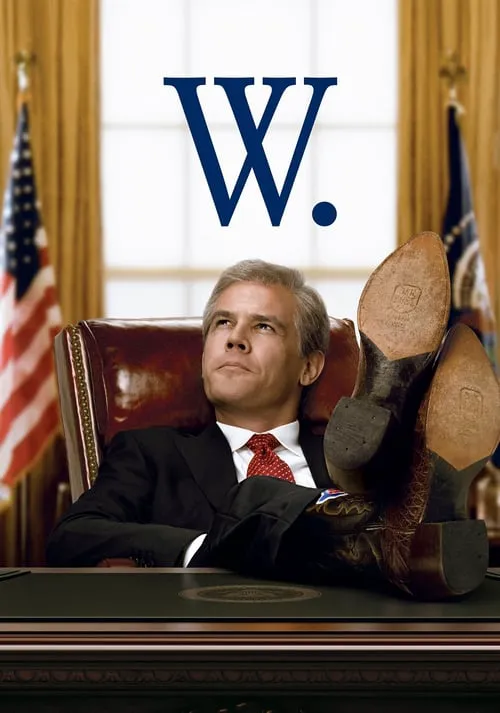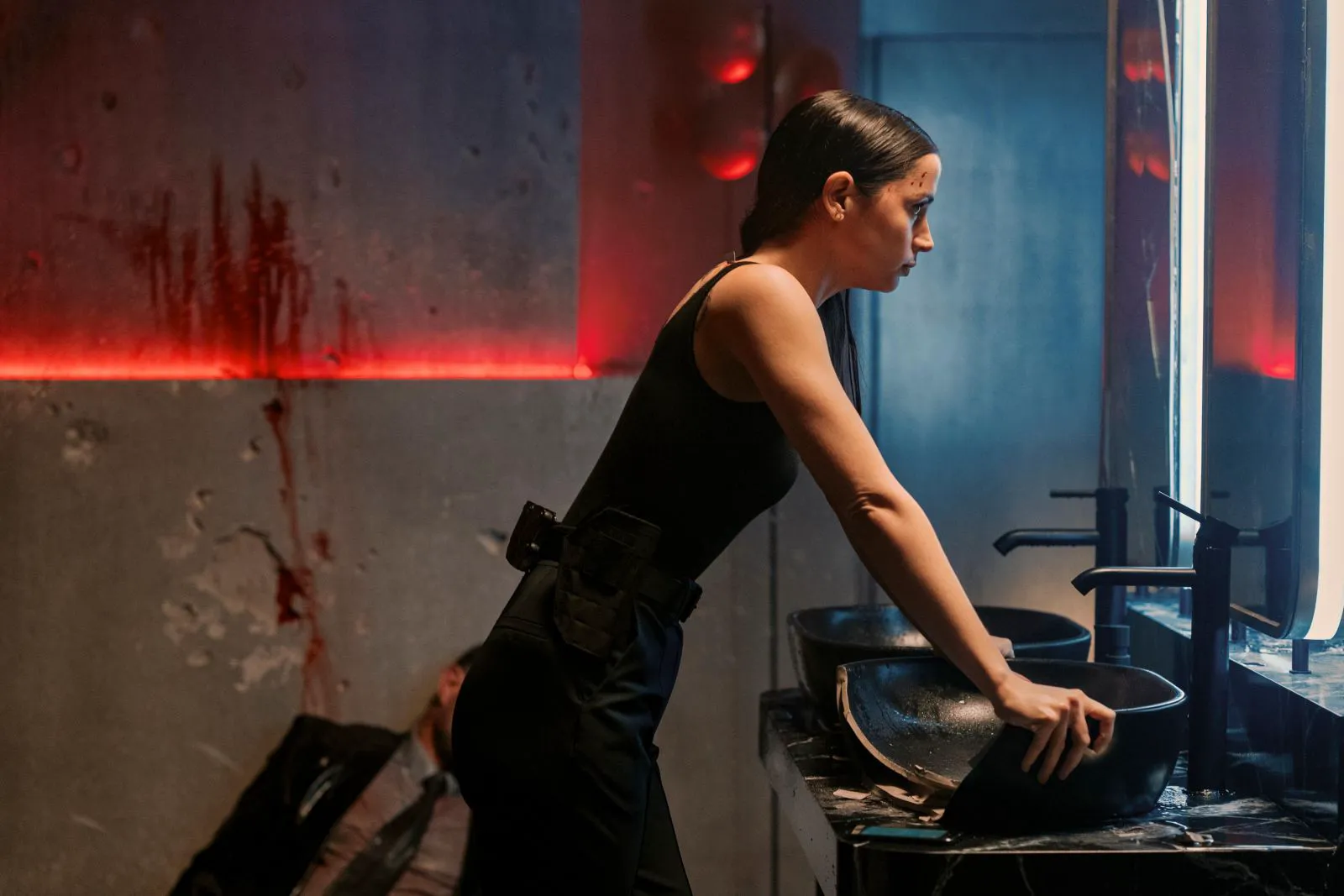W.

Plot
The 2008 biographical drama film W., directed by Oliver Stone, offers a thought-provoking exploration of the life and presidency of George W. Bush, the 43rd President of the United States. The film delves deep into Bush's formative years, personal struggles, and pivotal moments that shaped his decisions as a leader. The movie primarily focuses on the tumultuous period preceding his decision to launch a military invasion of Iraq in 2003. The film opens with a dramatization of Bush's childhood, showcasing his close relationship with his parents, George H.W. Bush, and Barbara Bush, respectively. The scene then shifts to Bush's time at Yale University, where he befriended a group of individuals who would later become influential figures in his life. Among them was James Baker III, a future Secretary of State, and Don Evans, a close friend who became a successful businessman. The narrative then accelerates, presenting Bush's experiences as a young businessman and eventually, his entrance into politics. As a candidate for the U.S. House of Representatives, Bush finds himself in a tough battle against Democrat Kent Hance. The intense campaign highlights Bush's resilience and unwavering dedication to his values. After failing to secure the House seat, Bush sets his sights on the Texas gubernatorial election in 1994. The film accurately portrays Bush's underdog status and his eventual triumph over Democrat Ann Richards. During this period, Bush meets his future wife, Laura Welch, a librarian at a local school. The scene that follows beautifully illustrates the blossoming romance between the future First Couple. The pivotal event that shapes Bush's presidency is his encounter with Dick Cheney, who would later become his Vice President. Their meeting marked the beginning of a long-standing partnership that would significantly influence the Bush administration's foreign policy decisions. Bush's presidential campaign is portrayed as a defining moment in the film. As he accepts his party's nomination, Bush's oratory skills and unwavering conviction leave a lasting impression on the audience. However, as the film transitions into the events leading up to the 2003 invasion of Iraq, Bush's decision-making becomes increasingly suspect. As tensions escalate following the 9/11 attacks, Bush finds himself at a critical juncture. Faced with the prospect of a potential threat from Saddam Hussein's regime, Bush becomes convinced that the U.S. needs to take military action to root out the threat. However, his advisors, including Cheney and Defense Secretary Donald Rumsfeld, seem hesitant to provide him with any concrete evidence linking Hussein to the attacks. This lack of concrete evidence and the administration's growing determination to topple the Iraqi leader form the crux of the film's narrative. The U.S. public, still reeling from the devastating 9/11 attacks, is primed to support the president's decisions, and a strong majority endorses the invasion. Bush, fueled by his conviction that Hussein poses a threat to U.S. national security, becomes increasingly resolute in his decision. Meanwhile, Laura Bush's character is also given considerable screen time, providing insight into her relationship with her husband. The scenes between Josh Brolin's Bush and Elizabeth Banks' Laura demonstrate the deep affection and mutual trust that the couple shares. Ultimately, the film raises several questions about the Bush administration's handling of the lead-up to the Iraq War. By focusing on the personal side of Bush, the film invites the audience to ponder whether the president's strong convictions and commitment to values blinded him to the potential risks and consequences of his decisions. W.'s portrayal of Bush's formative years and the tumultuous events surrounding his decision to invade Iraq serves as a thought-provoking commentary on leadership, conviction, and the weight of power. The film's exploration of the complex dynamics that shape the decisions of those in positions of authority serves as a poignant reminder of the importance of critically evaluating information and seeking diverse perspectives in the face of uncertainty.
Reviews





